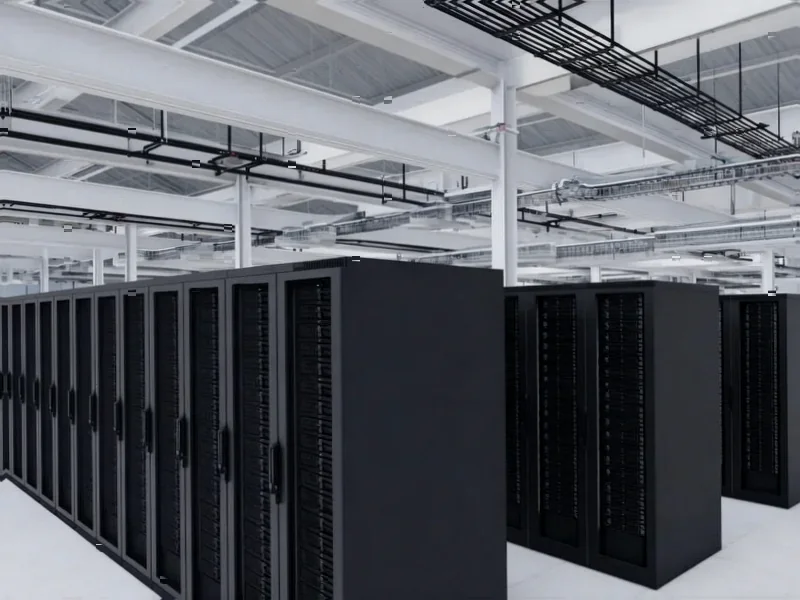According to DCD, Microsoft will invest $7.9 billion in the UAE between 2026 and the end of 2029, with $5.5 billion allocated to AI and cloud infrastructure expansion and $2.4 billion for operating expenses and costs of goods sold. This brings Microsoft’s total commitment under its UAE AI initiative to $15.2 billion since early 2023, including a $1.5 billion equity investment in G42 and $4.6 billion in data center capital expenditures. Microsoft Vice Chair Brad Smith revealed the company has deployed the equivalent of 21,500 Nvidia A100 chips and secured export licenses for an additional 60,400 A100-equivalent GPUs, while also developing partnerships with Abu Dhabi government entities and local telecom provider Du. This massive investment signals Microsoft’s deepening strategic commitment to the region amid intensifying global AI competition.
Walking the Geopolitical Tightrope
Microsoft’s UAE investment represents one of the most strategically complex technology deployments in recent memory. The company is navigating between competing US national security concerns and Middle East economic ambitions, particularly given the UAE’s historical position as a trading hub with both Western and Chinese technology interests. The fact that Microsoft secured export licenses under both the Trump and current administrations suggests the company has positioned itself as a trusted intermediary, but this delicate balance could easily be disrupted by shifting political winds or international tensions.
The partnership with G42 is particularly telling – this Abu Dhabi-based AI company has faced scrutiny over its previous ties to Chinese technology firms, making Microsoft’s assurances to both governments about responsible AI deployment and compliance with international standards absolutely critical. This isn’t just business as usual; it’s a high-stakes diplomatic mission where Microsoft has effectively become an extension of US foreign policy in the technology sphere.
The Technical Execution Minefield
While the investment numbers are staggering, the practical challenges of deploying this scale of AI infrastructure in the UAE are equally monumental. The region’s extreme climate presents significant cooling and energy efficiency challenges for data centers housing tens of thousands of high-performance GPUs. Microsoft will need to pioneer new approaches to sustainable computing in desert environments, where water scarcity makes traditional cooling systems problematic and temperatures regularly exceed what typical data center designs can handle.
The GPU deployment itself raises questions about supply chain resilience and technological sovereignty. With Nvidia’s latest chips facing export restrictions to certain regions, Microsoft’s ability to secure licenses for 60,400 additional A100-equivalent units suggests the company has developed sophisticated workarounds or alternative sourcing strategies. However, this dependency on political permissions creates a fundamental vulnerability – if export policies tighten further, Microsoft’s entire UAE AI strategy could be jeopardized.
Sovereign Cloud: Promise Versus Reality
Microsoft’s plans for sovereign cloud offerings in the UAE represent both a massive opportunity and a regulatory quagmire. Sovereign cloud requires unprecedented levels of data localization, compliance with local laws, and potentially conflicting obligations to multiple governments. The company will need to navigate the UAE’s evolving data protection framework while maintaining interoperability with global Microsoft services – a technical and legal challenge that even the most sophisticated cloud providers have struggled with in other markets.
More fundamentally, the concept of sovereign cloud in an AI context raises difficult questions about algorithmic transparency and accountability. When AI models are trained on localized data and subject to regional regulations, how does Microsoft ensure consistent ethical standards across different sovereign implementations? The company’s partnership with Core42 suggests they’re developing specialized solutions, but this remains largely uncharted territory with significant implementation risks.
Redefining Middle East Cloud Competition
This investment fundamentally alters the competitive dynamics in the Middle East cloud market. While Amazon Web Services and Google Cloud have regional presence, Microsoft’s $15.2 billion total commitment represents an order-of-magnitude difference in strategic focus. The company isn’t just dipping toes in the water – it’s building an entire ecosystem, complete with local partnerships, equity investments, and sovereign capabilities that competitors will struggle to match.
However, this massive bet also creates significant exposure. The Middle East cloud market, while growing rapidly, remains relatively small compared to North America and Europe. Microsoft is effectively betting that AI adoption will accelerate regionally at a pace that justifies this infrastructure investment. If adoption lags expectations or if regional economic conditions deteriorate, the company could find itself with substantial stranded assets in a market that hasn’t matured as quickly as projected.
Strategic Implications Beyond 2030
Looking beyond the immediate investment horizon, Microsoft’s UAE strategy has profound implications for global AI governance and technological alignment. By establishing a major AI hub outside traditional Western technology centers, Microsoft is helping shape emerging international standards and potentially creating a third pole in the US-China AI competition. The success or failure of this initiative will influence how other technology giants approach global expansion in politically sensitive regions.
The timing is also significant – with the UAE positioning itself as a neutral technology hub amid global tensions, Microsoft’s investment could either reinforce this positioning or become entangled in broader geopolitical conflicts. The company’s ability to maintain this delicate balance while delivering on its technological promises will be watched closely by governments, competitors, and investors worldwide, making this one of the most consequential international technology deployments of the decade.




